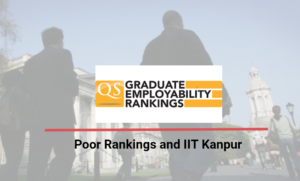Although the sleeping habits of Bruce Wayne have always remained a mystery, one can very easily argue that The Caped Crusader had a delayed sleep phase condition. While Bruce stays out fighting crime, an average college student brews a cuppa, staying up late till the proverbial break of dawn. That’s what most college students in India and even across the world might relate to, where going to sleep at 2 AM or 3 AM is pretty common. Quite sadly, in the real world, not sleeping enough or sleeping late than usual might have some consequences. To pursue this issue, Vox recently conducted a comprehensive survey to track the sleep demographics of campus students and to cover the reasons behind the irregularities in sleep schedules. We amassed 782 responses, that comprised of 485 UG/Dual Degree students and 297 PG/PhDs. Given the differences in lifestyles of these 2 groups, the division helped us analyze the survey data more vividly.
General Trends
The average sleep time of students for the whole student population clusters around 5-7 hours per day (60%). 64.9% of PGs and PhDs get a sleep of 5-7 hours/day, as compared to 54.7% of the UG/Dual Degree population. Considering 7 to be the magic number of hours one should sleep for sound physiological and mental health, it turns out that 66.4% of UG and Dual degree students are not sleeping enough. PGs/PhDs are in a much worse situation, with 72.2% of their population sleeping below 7 hours a day. A considerable chunk of the total population (8.2%) is getting sleep of fewer than 5 hours a day, inviting dangerous repercussions on their mind and body.
While not sleeping enough is a huge problem, if one is not sleeping early enough, they are highly likely to skip classes and miss breakfast. While the former deters academic performance, the latter can only make mornings more unproductive. Ideally, to get 7 hours of sleep, and to grab breakfast the other day (Assuming classes start at 8 AM), one should sleep at 12 am the latest. For this general case, a big portion falls out.
Is IIT Kanpur to blame here?
A good heuristic to answer the above would be to compare sleep schedules of students before and after joining the Institute. The results show a significant decrease of 6% in the number of people sleeping at least five hours a day. Interestingly the UG/Dual group is affected more adversely as compared to the PG/Ph.D group, with a decrease of 8% as compared to 3%. Notice that within this 5+ hours range of sleeping time, almost half the people navigated from the 7+ hour schedule to 5-7 hours of sleep, courtesy IIT Kanpur. Finally, the most important statistic here is the Transitional Probability, defined as the number of individuals who reduced their sleep time by 2 or more hours divided by the total number of individuals. Interestingly 98.2% moved across sleep schedules to cut down their sleeping time by 2 hours. This probability, when calculated for 4 or more hours, came out to be 63.8%.
So what actually takes most of our sleep-time?
Well, on average the whole student population spends most of the night time hanging out with friends, studying and watching movies/TV shows. In general bulla sessions are more prominent in the case of UG/Dual Degree population replaced by extensive workload and studies in PG/Ph.D. The point to ponder upon is that there belongs a considerable number in the population(12.9%) who agree that they spend time doing nothing. This is significantly more than the percentage of campus population spending time in clubs and fest related activities(10.8%).
It is likely that these delayed sleep schedules can adversely affect other areas of life. So we also asked the student community about the aspect of their life that has been affected the most because of their irregular sleeping schedules. The distribution was almost equally divided into social and academic factors, showing that we are not doing any good to any of these spheres of life by not sleeping enough.
Days of Sleep Depravity
A chronic sleep-restricted state can cause fatigue, daytime sleepiness, clumsiness, irregular appetite, etc. It adversely affects the brain and cognitive function. In general, a considerable portion of the student community feels that there are 2-3 mornings/afternoons(36.3%) in a week and 4-6 mornings/afternoons (20.5%) when they feel have not slept enough. Among the possible consequences of sleep deprivation, deficits in attention and working memory are perhaps the most important and the student’s community faces this a lot in general from feeling sluggish every morning to not being able to perform efficiently to their fullest in day to day activities.
[infogram id=”untitled-infographic-1hxj48jrwjkq2vg?live”]
The Exams
A lot of things suddenly change when exams are around the corner, and as intuition would predict, these changes affect our sleep health too. To examine the magnitude of this problem we calculated the number of people in our two major sleeping time windows, and they were found to decrease to one-fourth and two-third of their original values respectively. Given that exams require students to stay in their best mental composure, clearly sleeping for less than 7 hours could prove to be detrimental. Recall that a major chunk also(about 50%) feels that academics have been affected negatively, due to their sleep schedules, so maybe burning the midnight oil right before exams is not that good an idea.
Saving the best for the last, we asked students how they felt about their own sleeping schedules and if they thought could improve, and 57.43% of the population responded with a “No”, that they are not satisfied with their current clocks and would love to change it. A positive noteworthy point here is that if we can somehow shift our timelines by two or maybe three hours, we have almost solved the problem. But this involves a sharp change in times at which campus activities take place, which usually start after 9pm. Other factors like sleeping, hangout/bulla sessions or watching TV shows, can be shifted in a similar manner. These changes might seem too much for the existing batches, but freshers have a fresh start ahead of them, and with the right cooperation from people involved, we might just improve the situation slightly.
Credits: Jaya Shrivastava, Pulkit Deshmukh














